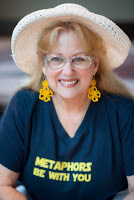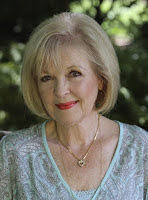Edie Melson's Blog, page 153
August 24, 2021
How to Write a Character with Integrity

By DiAnn Mills @DiAnnMills
Integrity applies to characters who value and practice honesty and strive in every way to practice strong moral and ethical principles. They are unwavering in a persistent quest to live their beliefs in public, with family and friends, and when no one is watching. When these characters fail, they learn from their mistakes and establish means to change their behavior.
Integrity provides a facade for those characters who seek to hide their activities and motives. Antagonists may display integrity to manipulate others, but within their fiber lies selfishness, greed, and a propensity to dishonesty for personal gain. What is missing in a character’s life speaks louder than what is told to the reader.
Characters who insist upon integrity are credible.
They are genuinely who they say they are and show it to the reader. Antagonists can offer appreciable traits, but their actions pave the way for a positive or negative outcome.
What else shows a character has integrity?
Is the protagonist always able to avoid confrontations that result in angry explosions, hurtful words, and sometimes violence? Not at all. They are like humans: imperfect individuals. Antagonists use calm attitudes and temper flare-ups to get what they want, while protagonists strive to respect others Patience is a virtue, a trait an honorable character seeks to emulate. Antagonists, depending on their goal in the scene, may choose patience to move forward on their less than stellar goals.
Love for oneself and others, even the unlovable shows a character is worthy of integrity. Kindness, forgiveness, the ability to apologize, solid listening skills, and respect for other’s opinions, beliefs, culture, occupation, and time are positive traits, although putting them into practice can be difficult.
TWEETABLEHow to Write a Character with Integrity - @DiAnnMills on @EdieMelson (Click to Tweet)
 DiAnn Mills is a bestselling author who believes her readers should expect an adventure. She creates action-packed, suspense-filled novels to thrill readers. Her titles have appeared on the CBA and ECPA bestseller lists; won two Christy Awards; and been finalists for the RITA, Daphne Du Maurier, Inspirational Readers’ Choice, and Carol award contests.
DiAnn Mills is a bestselling author who believes her readers should expect an adventure. She creates action-packed, suspense-filled novels to thrill readers. Her titles have appeared on the CBA and ECPA bestseller lists; won two Christy Awards; and been finalists for the RITA, Daphne Du Maurier, Inspirational Readers’ Choice, and Carol award contests. She is the former director of the Blue Ridge Mountain Christian Writers Conference, Mountainside Marketing Retreat, and Mountainside Novelist Retreat with social media specialist Edie Melson. Connect here: DiAnnMills.com
August 23, 2021
Develop a Social Media Plan by Knowing Where You Are & Where You Want to Go

By Edie Melson @EdieMelson
When I teach social media, I encourage people to relax and not take on too much at once.So today I want to back up and start at the very beginning. Because social media can reach millions, it’s way too easy to think of it as mass marketing. In reality social media is about one-on-one relationships.
That is the beauty and the dichotomy of the medium. It can be overwhelming—this building relationships with millions—especially when our goal is writing, not advertising. Now the good news: social media is not as difficult as it seems.
It Begins with Community
In many ways, it’s a return to small town thinking. In times past, people patronized merchants because the proprietors were their neighbors or friends. In this day and time, we also find neighbors and friends on Facebook, Twitter and in blogging communities. And those communities are where we need to concentrate our efforts.
It's vitally important to realize that, despite the bad rap it's gotten, social networking and writers are a natural match. Social networking is all about connecting with people through our words—not walking into a room full of strangers, standing on a platform and speaking. We can sit at our desks, write and reach the entire world.
That said, it IS all about connecting with others. If you're NOT willing to be found by others, then the writing industry as it stands today is gonna be tough for you.
Where to Begin There are two things you need: You’ve got to know where you are.You’ve got to know where you’re going.You are HereTo evaluate where you are, you need to know your numbers. How many friends/followers do you have on Facebook?How many followers do you have on Twitter?What other social media networks are you a part of? Pinterest, LinkedIn, Instagram, etc. Add those numbers here.You also need to know where you rank in search engines. Plug your name into Google and see where you are. Do you show up on the first page of a Google search?Plug your name into other search engines (bing.com, ask.com, etc) and see where you show up there, too.Now search your blog name, if it’s different from your name, and see where you show up.Finally, search some of your blog topics. Don’t just search your blog post titles, but the actual topics. For instance, I wrote a post titled, 31 BIBLICAL AFFIRMATIONS FOR WRITERS TO BEGIN THE YEAR . When I plug that title into the search engine, it comes up number one in the search. But when I search Biblical Affirmations for Writers, I still come up on the first page.That’s ultimately what we’re shooting for, to be found by topic, not just by someone already knowing our name.
First, we shoot for getting our names high in the search engine rankings. Then when we’re on the Internet map, we increase our visibility by getting known topically.
Plot Your CourseIt’s hard to get somewhere unless we know where we’re going. One of the easiest ways to get somewhere is to follow someone. So for this part, you need to think about two or three people who are where you want to be in the social media universe. Don’t just choose random, well-known people. Put some thought in this and look at people who write things similar to you. You’re going to use their path to success to guide you, so choose well.
Check their Social Media NumbersDo the same things with their names, as you did with yours.Look at their Facebook friends/followers.Check how many followers they have on Twitter.Look at the other social media networks they’re a part of. To do this, visit their websites to see what networks they find important.Check their Search Engine RankingPlug their names into Google and look at what you find.Now do the same thing with other search engines and make note of where they rank.Don’t skimp on the time it takes to do this research. It will give you a good picture of where you are and this will help you figure out where you're going.
I’d love to hear what you found when you followed the suggestions above. I’d also love for you to share your thoughts and questions in the comments section below.
Don’t forget to join the conversation!Blessings,Edie
TWEETABLEDevelop a #SocialMedia Plan by Knowing Where You Are & Where You Want to Go - @EdieMelson (Click to Tweet)
 Edie Melson is a woman of faith with ink-stained fingers observing life through the lens of her camera. No matter whether she’s talking to writers, entrepreneurs, or readers, her first advice is always “Find your voice, live your story.” As an author, blogger, and speaker she’s encouraged and challenged audiences across the country and around the world. Her numerous books reflect her passion to help others develop the strength of their God-given gifts and apply them to their lives. Connect with her on her WEBSITE, through FACEBOOK, TWITTER and on INSTAGRAM.
Edie Melson is a woman of faith with ink-stained fingers observing life through the lens of her camera. No matter whether she’s talking to writers, entrepreneurs, or readers, her first advice is always “Find your voice, live your story.” As an author, blogger, and speaker she’s encouraged and challenged audiences across the country and around the world. Her numerous books reflect her passion to help others develop the strength of their God-given gifts and apply them to their lives. Connect with her on her WEBSITE, through FACEBOOK, TWITTER and on INSTAGRAM.
August 22, 2021
Adverbs: Love 'em or Leave 'em?

by Ane Mulligan @AneMulligan
This post is aimed at new writers, although we can all use a refresher now and again. In a Facebook group (Avid Readers of Christian Fiction) an author asked readers if they notice adverbs being used. The answers varied, but a few readers said they felt like they were being told what to see in the story. They didn't experience it when the author used too many adverbs.
I like adverbs okay, if used sparingly and only in the right spot. But overuse adverbs pulls the reader out of the POV character's head. As the FB reader said, readers today want to experience the story as the character does, not simply be told the story. It makes a difference.
I thought about the first draft of the first manuscript I wrote. It was all telling. I told the story. That's okay in a first draft, but then, we need to go back through that draft and make it show the reader.
Examples are what helped me the most in the beginning of my first edit, and so I have listed a few.
Telling: She watched a truck drive slowly past her house. She persistently feared stalkers.Showing: A dirty white stepvan, its left side badly dented, slowed as it the house. Her heart slammed against her ribs. Please, don't let it be a stalker!
Telling: The sun rose swiftly, relieving her fears.Showing: Golden rays shot over the horizon, painting the sky pink and orange. Morning pushed back the night and with it, the nightmares.
Telling: He slowly walked down the hallway, his heart beating rapidly.Showing: He tiptoed down the hallway. His rapid heartbeat echoed in his ears.
Telling: She smiled sweetly.Showing: Her smile lit her entire face and dimpled one cheek.
Telling: His new employee worked diligently beside him. She impressed him.Showing: His new employee didn't take a break. Her diligence spoke volumes to him.
Are my works free of all adverbs? No. However, I try to be sure the ones I do use are necessary and make the read flow. I have a list of weasel words I search and destroy during each edit.
Your turn: what adverbs do you find yourself using a lot? How do you change them?
TWEETABLES 5 Examples to Obliterate Adverbs - @AneMulligan on @EdieMelson (Click to Tweet)
Adverbs deny readers the experience of story - @AneMulligan on @EdieMelson (Click to Tweet)
 Ane Mulligan has been a voracious reader ever since her mom instilled within her a love of reading at age three, escaping into worlds otherwise unknown. But when Ane saw Mary Martin in PETER PAN, she was struck with a fever from which she never recovered—stage fever. She submerged herself in drama through high school and college. Years later, her two loves collided, and a bestselling, award-winning novelist emerged. She resides in Sugar Hill, GA, with her artist husband and a rascally Rottweiler. Find Ane on her website, Amazon Author page, Facebook, Twitter, Instagram, Pinterest and The Write Conversation.
Ane Mulligan has been a voracious reader ever since her mom instilled within her a love of reading at age three, escaping into worlds otherwise unknown. But when Ane saw Mary Martin in PETER PAN, she was struck with a fever from which she never recovered—stage fever. She submerged herself in drama through high school and college. Years later, her two loves collided, and a bestselling, award-winning novelist emerged. She resides in Sugar Hill, GA, with her artist husband and a rascally Rottweiler. Find Ane on her website, Amazon Author page, Facebook, Twitter, Instagram, Pinterest and The Write Conversation.
August 21, 2021
Curiosity and Passion: The Writer’s Friends

by Craig von Buseck @CraigVonBuseck
As a writer of history and biography, I have found two essential keys to writing success – curiosity and passion. These two tools come into play from the choosing of a project until the submission to an editor or publisher.
Seeds of a Story For me, the genesis of a project begins with curiosity about a story of interest. So much work goes into a writing project, whether it is an article, a nonfiction book, narrative nonfiction, historical fiction, or a biography. The writer must first find the story intriguing in itself or she/he may not want to commit the time and energy to finishing the project. If the writer doesn’t have a passion about the story, it is likely the general public won’t either.
This is where both curiosity and passion become indicators in the writer’s decision of which projects to pursue.
Curiosity Leads Research Once I become interested in a subject, it is curiosity that pushes me to learn more about it. Every subject I have ever chosen has questions attached to it that need to be answered. I find that I press on in my research until I discover the answers to these questions.
This is where curiosity and passion tend to act as a team. By seeking to answer the curiosity questions, I become more interested in the subject. This brings me to an inevitable crossroad. I may satisfy my curiosity by discovering that a story is nice, but not truly compelling. In this case my search comes to an end and I move on to another project. Then again, I may take the other path at this crossroad by learning that this is, as one literary agent once told me, “a story that needs to be told.” At this point, curiosity passes the baton to passion and we are off to the races!
In my book Victor! The Final Battle of Ulysses S. Grant, curiosity drove me to find out if General Grant was able to overcome bankruptcy and throat cancer to finish his Personal Memoirs and secure his wife’s financial future before he died.
In my book I Am Cyrus: Harry S. Truman and the Rebirth of Israel, curiosity drove me to discover how Harry Truman’s Jewish business partner and lifelong friend, Eddie Jacobson was able to convince the president to meet with the Zionist diplomat, Chaim Weizmann, who eventually convinced him to recognize and support modern Israel.
In my book Forward! The Leadership Principles of Ulysses S. Grant, curiosity led me in my quest to discover how General, and later President Grant overcame alcoholism.
Both curiosity and passion take turns sharing the lead in the research and outlining process. We call this “pre-writing,” and it is a vital part of the process. For a writer of history and biography, this process can take years – sometimes even decades. The waning of curiosity through the answering of the big questions is a signal that the research is coming to a close and it’s time to move from pre-writing into the actual writing process.
Passion in Writing Scenes The method I use in writing my books is, as I have said, to do the research and outlining in the pre-writing stage. This includes the choosing of individual scenes within each chapter. Once the writing process begins, I allow myself to be led by passion. Instead of writing the story chronologically, I post the list of scenes within each chapter in a prominent place – next to my desk, posted on the refrigerator, and usually in both places. The point is to have these scenes in a place where I see them often and, as a result, think of them often.
When I’m in the heat of a project, I try to write most mornings on the weekdays, then as often as I can on a Saturday. After a time of prayer, asking the Holy Spirit to guide me, I then choose the scene that I will work on that day. This is done more from the heart – what I am passionate about – than from the head. I read over the list of scenes and see which one causes my heart to leap a bit. That is usually the scene I work on that day.
Passion in Finishing the Project As is true in all things, passion often wanes as a project continues on. The scenes that are left at the end are usually not as exciting – which is why they are left for the end. Now passion changes from the excitement about the scenes to anticipation of completing the book. Once all the scenes are completed, I go to work on writing the introductions, exposition, transitions, connecting material, and conclusions to make it a readable book.
In the end, the passion to make the story known carries me through the more tedious work of editing and correcting the manuscript. As I tell my writing students, “the key to effective writing is pre-writing, writing, re-writing, and re-writing again.
That passion is also a driving force for marketing the book that I have written, with the goal of making the story known to those who need to know it.
Beginning the Next Project Once the book is on the market and I have done what I can do to make it known to the public, I go back to my old friends, curiosity and passion to discover what great story I will be telling next! I don’t know about you, but for me the life of a writer is a wonderful adventure!
TWEETABLECuriosity and Passion: The Writer's Friends - @CraigVonBuseck on @EdieMelson (Click to Tweet)
 Dr. Craig von Buseck is an award-winning author and the Managing Editor for Inspiration.org. His new books are Victor! The Final Battle of Ulysses S. Grant, a biography of the final two years in Grant’s life, and the companion, Forward! The Leadership Principle of Ulysses S. Grant. Learn more at vonbuseck.com.
Dr. Craig von Buseck is an award-winning author and the Managing Editor for Inspiration.org. His new books are Victor! The Final Battle of Ulysses S. Grant, a biography of the final two years in Grant’s life, and the companion, Forward! The Leadership Principle of Ulysses S. Grant. Learn more at vonbuseck.com.
August 20, 2021
The Name of Your Call to Write
by Emme Gannon @GannonEmme
A name is a precious gift, an identifying word that should bring a symphonic sound to your ears each time it is spoken. Your name is a word filled with the essence of who you are. You are the name by which you are addressed. We often couple our name with what we do. Your name, then author, or writer. Both names need to be part of the image we have of ourselves. However, that is not always the case.
Years ago I had a nickname that didn’t fit. When the wrong name is used to refer to us, it does not connect to who we are or who we will be. I went through many years being teased and embarrassed when my name was called.
We often have names we give ourselves. Names like loser or less than. They become subconscious labels we wear that are loaded with emotion and meaning and force us to live in a smaller story, one confined by fears and insecurities and limited by rejection we’ve endured. We’re afraid to step into the life we’re called to. We plough through life often fitting into the mold others have designed for us instead of breaking free and allowing God to renew and restore.
In the Biblical story of Ruth, we read where Ruth’s mother-in-law reacted to the death of her husband and sons by changing her name from Naomi, which means “my delight” to Mara, “bitter.” She allowed her sad circumstances to turn her away from who she was to what she was feeling at that tragic time in her life. We know how the story ends. She is renewed and once again becomes Naomi and lives to see the birth of her grandson, as well as become part of the tree of life that bears our Savior Jesus.
Our names are important to God. The Bible gives many examples of God intervening to change the name of His children. Abram, meaning “exalted father” became Abraham, “father of a multitude.” Jacob, “supplanter or deceiver” was changed by God to Israel, “prince of God.” Simon, “he has heard” became Peter, “rock.” The names God gave proclaimed what they would become as they followed His commands.
My own re-naming came on a Sunday morning during our pastor’s sermon. He challenged us with the question, “What do you feel when someone speaks your name? How does your name identify you? What story does it tell?” I tried to blot away tears. They would not be held back. The hurt was too deep.
God used that sermon to change my name. I discarded the nickname that had brought such embarrassment and embraced the given name which had also belonged to my grandmother. I traded a name that stood for rejection to a name that meant “Whole, God is with us.”
Recently a dear friend gifted me with an insulated drinking cup that had Writer written on it. Encapsulated around that word were definitions of a writer. Artist. Romantic. Passionate. Observer. Author. Daydreamer. There were more adjectives than I could count. All defining a writer. Beneath the litany of writer names was my name. My friend didn’t have a clue as to the significance of this gift.
Words have meaning. Words have life. Names tell a story of not only who we are but the potential of who we can become. God cares what we are called and what we call ourselves. He reassures us in Isaiah 49:16, “See, I have written your name on the palm of my hands.” Again, in Isaiah 43:1, we are reassured, “I have called you by name; you are mine.”
Do you believe your calling? Can you say your name and put writer next to it? Even though the words and stories that you’ve spent hours and days and months writing have been thus far rejected for publication, can you still know that the word writer is part of your name? Don’t lose heart. When God calls, He equips. Our job is to let Him clear all the false names we’ve attributed to ourselves so that the names He has given us will strengthen and sustain us for service.
On the back of my writing mug are the words, Write on . Yes, write on, writer. Write on, dreamer of words. Write on, creator of stories. Write on.
TWEETABLEThe Name of Your Call to Write - @GannonEmme on @EdieMelson (Click to Tweet)
 Emme Gannon is a wife, mother, and grandmother who loves to write stories that stir the heart. Her award-winning writing has appeared in Focus on the Family magazine, several anthologies, and numerous newsletters. She just completed her first novel.
Emme Gannon is a wife, mother, and grandmother who loves to write stories that stir the heart. Her award-winning writing has appeared in Focus on the Family magazine, several anthologies, and numerous newsletters. She just completed her first novel.
August 19, 2021
Three Writers and a Waitress

by Crystal Bowman
For most careers you can earn a degree, complete an internship, or acquire a certification. Not so for writers. We can attend writers conferences and take some online courses, but basically, we need to figure things out on our own—with the help of other writers. So when my author friend Ava Pennigton asked me to join her for lunch, I said yes.
Ava’s friend Connie Palm was a retired school teacher and missionary. She had devoted 10 years on the mission field in China and returned to the states after her husband passed away. He had always wanted her to publish her Basil Bear stories that she told to children at church and school. She needed some advice, so we planned to meet at a fancy restaurant where we could find a private spot to have our conversation.
When we met at the restaurant near Connie’s home, our three cars were the only ones in the parking lot. A sign on the door let us know it was closed on Mondays. Connie suggested a greasy-spoon diner around the corner. “It’s not quiet, but it has good food,” she said.
Connie was right—the food was good, but we needed to tune out the noisy lunch crowd in order to accomplish our meeting. Since we stayed for two hours, eventually we were the only customers left in the diner.
While we talked and ate, I noticed our waitress glancing at us several times. I thought perhaps she had overheard bits and pieces of our conversation and was intrigued. She was friendly and sweet, but her eyes were sad. As we got up to leave, she asked if she could share something with us. When we agreed she looked at Connie and said, “My mom passed away two years ago and it’s her birthday today. This morning I prayed and asked God to somehow comfort me. When you walked in the door, I had to look twice because you look so much like my mom. May I please have a hug from you?” Connie opened her arms and embraced the waitress as she sobbed on Connie’s shoulder.
I don’t believe it was coincidence that the fancy restaurant was closed. As writers, we had our agenda and wanted a quiet spot, but God led us to a noisy, greasy-spoon diner because a grieving waitress needed a hug.
In the months that followed, Connie published two Basil Bear picture books, then joined her husband in heaven. I own a signed copy of both books and will treasure them forever.
TWEETABLEThree Writers and a Waitress - Crystal Bowman on @EdieMelson (Click to Tweet)
 Crystal Bowman is an award-winning, bestselling author of more than 100 books for children and four nonfiction books for women. She also writes lyrics for children’s piano music and is a monthly contributor to Clubhouse Jr. Magazine. She loves going to schools to teach kids about poetry. She also speaks at MOPS (Mothers of Preschoolers) groups and teaches workshops at writers’ conferences. When she is not writing or speaking, she enjoys going for walks, working out at the gym, and eating ice cream. She and her husband live in Michigan and have seven huggable grandkids.
Crystal Bowman is an award-winning, bestselling author of more than 100 books for children and four nonfiction books for women. She also writes lyrics for children’s piano music and is a monthly contributor to Clubhouse Jr. Magazine. She loves going to schools to teach kids about poetry. She also speaks at MOPS (Mothers of Preschoolers) groups and teaches workshops at writers’ conferences. When she is not writing or speaking, she enjoys going for walks, working out at the gym, and eating ice cream. She and her husband live in Michigan and have seven huggable grandkids. WWW.CRYSTALBOWMAN.COMWWW.FACEBOOK.COM/CRYSTAL.BOWMANWWW.FACEBOOK.COM/CRYSTALJBOWMANWWW.INSTAGRAM.COM/CRYSTALBOWMANAUTHOR
August 18, 2021
The Difference Between an Em Dash, an En Dash & a Hyphen

by Edie Melson @EdieMelson
WARNING! Grammar nerd content ahead.
Today I'm sharing the answer to one of my personal pet peeves—the incorrect use of punctuation. But instead of a rant, I'm going to equip you to do this correctly!
I run into this issue with writers all the time—even with experienced writers. So today I’m going to give you the grammar short course and you’ll be an expert on the differences and know the best choice for every writing situation.
You may ask why it matters, but the fact is we want to be accurate when we communicate through the written word. And each of these punctuation marks carries a different meaning.
What’s the Difference?
1. A Hyphen (incorrectly referred to as a dash)
This is the shortest of the three. A hyphen is used between words or parts of words. This isn’t interchangeable with the other two types of dashes. The following are several times when a hyphen is used, but it’s not an all-inclusive list.
Examples:
Hyphenate compound words:
daughter-in-lawthree-year-oldsix-packHyphenate compound modifiers that work together as a single adjective:
We need a baby-friendly restaurant.But don’t hyphenate words if the noun comes first:
Is that restaurant baby friendly?Hyphenate numbers
Numbers between twenty-one and ninety-nine should hyphenated when they’re spelled out.
There are twenty-seven teenagers in the youth group.Hyphenate numbers that are the first part of a compound adjective, whether they a numerals or spelled out:
My recent social media class was 60-minutes long.My son loves thirteenth-century insults.Don’t hyphenate numbers if the number is the second part of the phrase:
There isn’t an exit 3 on that highway.Hyphenate words with the prefixes ALL-, Ex-, Self-
That is her ex-husband.The dog chewing on the bone looked self-satisfied2. An En Dash
This is longer in length than a hyphen. It is used to indicate a range of numbers or a span of time. I remember it because it really is a replacement for either the words through or to.
Examples:
The party was from 5:00pm–7:30pm.I read pages 25 –101 in my English book.3. An Em Dash
An em dash is the longest of these three. I remember them by knowing that the letter N is shorter than the letter M.
An em dash is used in similar circumstances to a colon, but is less formal and generates stronger emotion. It also can replace a parenthetical phrase.
Examples:
Awkward: Susan loved three things: fall, coffee, and walking in the rain.Better: Susan loved three things—fall, coffee, and walking in the rain.Awkward: After waiting several seconds, the speaker continued (choosing to ignore the rude interruption).Better: After waiting several seconds, the speaker continued—choosing to ignore the rude interruption.How do I make them on my keyboard?
En Dash
To insert an EN DASH when typing on a Mac or a PC, type in this order:
space single hyphenspacethe next wordspaceAfter the last space, the hyphen will change to an EN DASH
Em Dash
To insert an Em Dash when typing on a Mac or a PC, type in this order:
the word space two hyphens without any spaces between themspacethe next wordspaceAfter the last space, the hyphen will change to an Em Dash.
NOTE: When tweeting or texting, all these rules go out the window. Those two forms are very casual ways of communicating and I've given up with being a grammar snob there.
Bottom Line:
This is a crash course in how to correctly use these three punctuation marks. What questions do you have about when to use them or how to create them on your computer? Leave your comments below.
Don't forget to join the conversation!
Blessings,
Edie Melson
TWEETABLE
The Difference Between an Em Dash, an En Dash & a Hyphen: @EdieMelson (Click to Tweet)
 Edie Melson is a woman of faith with ink-stained fingers observing life through the lens of her camera. No matter whether she’s talking to writers, entrepreneurs, or readers, her first advice is always “Find your voice, live your story.” As an author, blogger, and speaker she’s encouraged and challenged audiences across the country and around the world. Her numerous books reflect her passion to help others develop the strength of their God-given gifts and apply them to their lives. Connect with her on her WEBSITE, through FACEBOOK, TWITTER and on INSTAGRAM.
Edie Melson is a woman of faith with ink-stained fingers observing life through the lens of her camera. No matter whether she’s talking to writers, entrepreneurs, or readers, her first advice is always “Find your voice, live your story.” As an author, blogger, and speaker she’s encouraged and challenged audiences across the country and around the world. Her numerous books reflect her passion to help others develop the strength of their God-given gifts and apply them to their lives. Connect with her on her WEBSITE, through FACEBOOK, TWITTER and on INSTAGRAM.
August 17, 2021
Three Ways For Writers to Love Their Readers

by Katy Kauffman @KatyKauffman28
Writers must love their readers.
I think about my friends who have chronic illness and admire their trust in God and commitment to doing ministry. I think about how they can give and give, when they need to receive and receive God’s help and healing. What drives them to keep at it, holding onto hope and helping others? I would say it’s love.
I think about my friend who takes care of just about everyone she knows. She has four kiddos that are only three years apart, she is a nurse who takes care of other people’s precious babies, and she ministers to the Sunday school class her husband and she leads. What is her driving force? I would say it’s love.
I think about my own great-grandmother who passed a legacy of faith to my mom who passed it (along with my dad’s input) to me. My great-grandmother was a publisher, a poet, and the best Christmas cook. She took care of her grandchildren, and when I came into the picture, she took care of me and even other kids. What was her life’s driving force? I would say it was love.
How do you want to be remembered? How do you want people to describe you and your writing? Is it love?
Love as a Driving Force
I think about the cross. Two thousand years ago, a Man was nailed to it who had never done anything wrong. Yet God placed all of our sin—the sin of every soul who has ever lived and ever will live—on Him. Then God turned His back on Jesus so His Son could bear our sin’s punishment for us. What do you call that? No doubt, it’s love.
Love was Jesus’ driving force then, and it’s His driving force today. We serve a risen Savior who loves us and inspires us to love. We now belong to His kingdom of love—"For He has delivered us from the power of darkness, and conveyed us into the kingdom of the Son of His love” (Colossians 1:13 NKJV).
As you write and minister in His name, let Jesus’ love be your driving force. He never stops loving us, and by His grace, we can love and keep loving. With every word we write, with every prayer we offer on behalf of someone else, and with every act of kindness. Jesus calls us to abide in His love, and it never runs out.
“As the Father loved Me, I also have loved you; abide in My love.”(John 15:9 NKJV)
3 Ways to Show God’s Love in Our Writing
It can be hard to love someone at a distance—we will probably never meet all of our readers, past or present or future. But we can love them. Through our words, through the truth we share. Through how we share it.
As you write, consider these ways to show readers you care about them. We can practice these in every article and book we write.
1. Show through your stories that you can relate to your readers’ struggles. We can show our readers that we love them by showing them we can relate to their daily challenges. We can think through our own past struggles—or current ones—and how we needed God’s help. Sharing something from our own struggles will help them to see that we’ve walked a similar road. It will build a bridge so we can share how God helped us, what His Word says about those challenges, and how He can help them.
2. Take the time to study Scripture with its Author. One of the best uses of our time is to study the Bible with God. We come away blessed with understanding for our lives, and we gain insight into how to minister to others.
Show your readers you love them by studying Scripture enough, so you can best explain what it means and how it relates to life today. The time we invest in preparing to write, is as important in the time we take to write. Rushing through our study time can rob us and our readers of valuable treasures.
3. Word your application in a way that will appeal to them and stick with them. Know your target audience, and read your writing from their perspective. What will hit home with them and write God’s Word on their hearts? How can we phrase something so that it “sticks,” making an impact in their minds and hearts? As we remember what they are going through, we can tailor our application to speak to their specific needs and challenges.
We can infuse life into our application by not only sharing the “what,” but the “why” and the “how.” Why should we trust God when life doesn’t make sense? How do we keep walking with Him when all we can see is the storm we’re in? Sharing why and how gives concrete motivation to do what you’re sharing and concrete ways to practice it.
Which of these ways do you gravitate toward the most? Are any of these a struggle? Join us in the conversation, and leave a comment below. God bless you as you love readers in His name.
TWEETABLEThree Ways For Writers to Love Their Readers - @KatyKauffman28 on @EdieMelson (Click to Tweet)
 Katy Kauffman is an award-winning author, an editor of REFRESH BIBLE STUDY MAGAZINE, and a co-founder of LIGHTHOUSE BIBLE STUDIES. She loves connecting with writers and working alongside them in compilations, such as Feed Your Soul with the Word of God, Collection 1 which is a 2020 Selah Awards finalist.
Katy Kauffman is an award-winning author, an editor of REFRESH BIBLE STUDY MAGAZINE, and a co-founder of LIGHTHOUSE BIBLE STUDIES. She loves connecting with writers and working alongside them in compilations, such as Feed Your Soul with the Word of God, Collection 1 which is a 2020 Selah Awards finalist.In addition to online magazines, Katy’s writing can be found at CBN.COM, thoughts-about-God.com, and three blogs on writing. She loves to spend time with family and friends, talk about art and crafts in her group MY ARTSY TRIBE, and tend the garden in the morning sun. She makes her home in a cozy suburb of Atlanta, Georgia. Connect with her at her blog, WINNING THE VICTORY, and on FACEBOOK and TWITTER.
August 16, 2021
What to Do When a Writer Needs Rest

by Lucinda Secrest McDowell @LucindaSMcDowelA whole week in a cottage by the sea. Sounds like a perfect time to write, doesn’t it? Or not.
Maybe it’s a perfect opportunity to actually Do Nothing. To rest. To walk. To be silent. To listen. To remember.
To dream. To create. To be nourished, body and soul.
Victorian art critic John Ruskin once observed, “There is no music in a rest, but there is the making of music in it. In our whole life-melody the music is broken off here and there by rests, and we foolishly think we have come to the end of the tune. Not without design does God write the music of our lives. But be it ours to learn the tune, and not be dismayed at the rests. With the eye on Him, we shall strike the next note full and clear.”
Pauses are essential for creatives—those of us who spend our lives creating. And for everyone else too. That’s how our Creator wired us. We see it in natural rhythms which include times of both music and restful silences.
Are you so full of ideas, plots and words that you feel like you will burst? Or are you dry and empty, in dread of facing yet another empty page (or screen)? Either way, it may be time to pull away from it all.
No music for a time. In order to receive.
Start by unplugging from all your devices. Stop researching. Stop thumbing through your Bible in search of that perfect scripture quote. Stop reading great stuff by brilliant writers. Just stop!
Be perfectly quiet.
Sit in a comfortable place with your hands open wide. To release and receive.
RELEASE your concerns, anxieties and fears. Ask God to carry them for you; or even dispel them altogether.
Identify them and then pray:
Lord, you know what weighs me down, what hinders my life and my work. And why. I release them now to You, one by one ________________________________, trusting in Your protection and deliverance. Amen.
Now RELEASE your dreams, hopes and daring ideas to the One who will hone, fashion and tweak for His best purposes. Identify them and then pray:
Lord, I want so much! Keep my vision and goals high and lofty – bold for Your glory. But today, as I name them _____________________________________, I release them back into Your hands, asking that You will guide me forward or redirect me as You choose. I want Your will and Your perfect timing. Amen.
You are now in a position to RECEIVE. Once again, open your hands and be still. Pray as Samuel did, “Speak, Lord, for your servant is listening.” (1 Samuel 3.10)
Continue in silence. Five minutes may seem like five hours to those of us who love to fill all space with words. But God is so very present in this place as you pray:
Lord, I receive from You love, grace, mercy, hope, joy, forgiveness, wisdom, truth, strength, Holy Spirit power, courage, peace, and a very real sense of Your presence even now as I dwell deeply with You. Reveal to me where to direct my energy and resources in this ministry. Give me grace to face both opened doors and doors slamming shut. Keep me close to You that I might always recognize the Source of all that is worthy to be released to a broken world, through the very human vessel of my words. Amen.
Whether your time apart is a day or a week, it will be an investment in your ministry of writing and you will see benefits. Maybe not immediately. But cleaning the clutter makes way for fresh work, a fresh filling. Even our Lord Jesus withdrew to a solitary place for refreshment and renewal—emerging with power. To conquer the very next challenge—feeding the five thousand!
Writer, will you rest? Release Receive Then go forth Restored. TWEETABLEWhat to Do When a Writer Needs Rest - @LucindaSMcDowel on @EdieMelson (Click to Tweet)
 Lucinda Secrest McDowell, M.T.S., is a storyteller and seasoned mentor who engages both heart and mind while “Helping You Choose a Life of Serenity & Strength.” A graduate of Gordon-Conwell Theological Seminary and Furman University, McDowell is the author of 15 books and contributing author to 30+ books. Her award-winning books include Soul Strong, Life-Giving Choices, Dwelling Places, and Ordinary Graces. Lucinda, a member of the Redbud Writers Guild and AWSA, received Mt. Hermon “Writer of the Year” award and guest blogs monthly for ‘The Write Conversation.’
Lucinda Secrest McDowell, M.T.S., is a storyteller and seasoned mentor who engages both heart and mind while “Helping You Choose a Life of Serenity & Strength.” A graduate of Gordon-Conwell Theological Seminary and Furman University, McDowell is the author of 15 books and contributing author to 30+ books. Her award-winning books include Soul Strong, Life-Giving Choices, Dwelling Places, and Ordinary Graces. Lucinda, a member of the Redbud Writers Guild and AWSA, received Mt. Hermon “Writer of the Year” award and guest blogs monthly for ‘The Write Conversation.’ Whether coaching writers and speakers, pouring into young mamas, or leading a restorative day of prayer, she is energized by investing in people of all ages. As a communications teacher, she has served on the faculty of Speak Up Conference, Mount Hermon Christian Writers Conference, Blue Ridge Mountains Christian Writers Conference, Florida Christian Writers Conference, Asheville Christian Writers Conference and co-directs the annual spiritual retreat reNEW – retreat for New England Writing & Speaking. Known for her ability to convey deep truth in practical and winsome ways, McDowell shares words from “Sunnyside” cottage in New England and blogs weekly at WWW.LUCINDASECRESTMCDOWELL.COM
August 15, 2021
Marketing Tools Writers Should Make the Most Of

by Karen Whiting @KarenHWhiting
You’ll get the most out of any promotional tool by using it, reusing it, modifying it, and applying the tool in different ways. Making the most of marketing means being pray-pared, prepared, and practiced.
Promote AlwaysThe Apostle Paul used every opportunity to promote. Consider how he turned surviving a poisonous snake bite into a great conversation about the gospel. Even seeing a statue to an unknown god became a promo op.
Be ready to share about your writing. Have a book with you for photo ops. I’m always surprised at conferences that many people take photos, but few hold up a book they wrote. Be sure to show your book with your smile. Remember that photo ops are promo ops.
Be ready to share about your book and the real message behind it that glorifies God. Use that elevator speech for anyone who wants to know what you write and show your passion.
MemesMemes and other tools take time to create, so get the most mileage out of them Add the same meme to multiple social media sites as well as to blog posts and use the most popular ones on flyers when you’ll be speaking.
When a meme appears to be a hit due to the number of shares and comments garnered, repost it every month or two. People forget, new followers come on your site, and not every follower sees all you post each day, so it’s worth reposting the best. If there’s humor in a meme then people who read it before will often chuckle again. Modify posts by changing the words used or the picture.
Be sure the words are clear and easy to read on a mobile phone. Avoid the fancy scripts and stick to simple fonts. Consider using a good meme for an ad. $5 ads repeated a few times have reached 75,000 people with more than 7000 post engagements on my friend’s FB pages. One of my four-day ads added more than 100 new followers to my page.
BookmarksTake time to design a bookmark. Be sure to include links to your website, newsletter, and where to buy the book(s). Make it a useful tool with great tips or information readers will want to keep. You might even have a great meme to put on the bookmark. My bookmarks rank among my most shared pins on Pinterest. You can also add a call to action to the bookmark.
Let the bookmarks be conversation starters at conferences, book tables, and even meetups. Pass them out as a little gift and let the recipient ask questions or comment. Add them to mailings, especially with greeting cards. Tuck in an extra one to be shared.
Keep bookmarks and business cards with you to pass out when you share about your book. Use the bookmark on your blog posts too. The information makes a great blog prompt.
FreemiumsDownloadable one sheets of tips, games, backstory information, and fascinating facts make easy give-aways for readers. They are also easy to print for events and book signings to draw people to your table. With your name and link to your website and social media included, they make great marketing tools.
The individual tips in a freemium also make good individual social media tips to spread out over a week or month.
Links to RepostLinks from interviews, popular blog posts, and articles are also great tools that took time to generate. You had to pitch ideas and then wait for the interview or article to post. Use those links. Add them to newsletters to let readers share in what you did lately, especially if you can share how about the content as a gift to the reader.
Also use links of what you create. Links to the freemiums on your website and videos on You tube or FB can be posted many times, especially the most popular ones. These are easy to create and can even be a series of short videos. I did a bread baking series that became the basis of a home-economics course for homeschoolers. Making a very short video is easy on VideoAsk or in FB business suite.
Post the links in your online press kit, newsletter, and add one to each freemium printout if you have ones that match the topic of the handout.
More Tools to UseLook around at any words or pictures you spent time creating as other multiuse tools. Your book description for the proposal, publisher’s catalogs, and the back of the book can be used as posts too, or as the start of a blog post. Sidebars and quotes used in your books may be great fodder for blog posts or to excerpt for social media.
Even your bios provide material. Use parts of it in posts, make sure to send the bio to meeting planners and media when you pitch to be a speaker or guest. Simply consider what took time to craft and then brainstorm more ways to use the materials.
We manage time more wisely when we recycle materials already created and find new ways to reuse them. Above all, pray for wisdom to create meaningful materials that glorify God and share the heart of the message God gave you to write.
TWEETABLESMarketing Tools Writers Should Make the Most of - @KarenHWhiting on @EdieMelson (Click to Tweet)
Making the most of marketing means being pray-pared, prepared, and practiced - @KarenHWhiting on @EdieMelson (Click to Tweet)
 Karen Whiting (WWW.KARENWHITING.COM) is an international speaker, former television host of Puppets on Parade, certified writing and marketing coach, and award-winning author of twenty-seven books for women, children, and families. Her newest book, The Gift of Bread: Recipes for the Heart and the Table reflects her passion for bread and growing up helping at her grandparent’s restaurant. Check out her newest book Growing a Mother’s Heart: Devotions of Faith, Hope, and Love from Mothers Past, Present, and Future. It's full of heartwarming and teary eyed stories of moms.
Karen Whiting (WWW.KARENWHITING.COM) is an international speaker, former television host of Puppets on Parade, certified writing and marketing coach, and award-winning author of twenty-seven books for women, children, and families. Her newest book, The Gift of Bread: Recipes for the Heart and the Table reflects her passion for bread and growing up helping at her grandparent’s restaurant. Check out her newest book Growing a Mother’s Heart: Devotions of Faith, Hope, and Love from Mothers Past, Present, and Future. It's full of heartwarming and teary eyed stories of moms.Karen has a heart to grow tomorrow’s wholesome families today. She has written more than eight hundred articles for more than sixty publications and loves to let creativity splash over the pages of what she writes. She writes for Crosswalk. Connect with Karen on Twitter @KarenHWhiting Pinterest KarenWhiting FB KarenHWhiting



